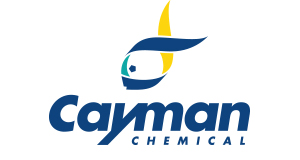Quinacrine (hydrochloride hydrate)
Quinacrine (hydrochloride hydrate)
SKU
CAY15041-1
Packaging Unit
1 g
Manufacturer
Cayman Chemical
Availability:
loading...
Price is loading...
Shelf life (days): 1460.0
Formulation: A crystalline solid
Formal Name: N4-(6-chloro-2-methoxyacridin-9-yl)-N1,N1-diethylpentane-1,4-diamine, dihydrochloride hydrate
Purity: ≥95%
Formula Markup: C23H30ClN3O / 2HCl [XH2O]
Formula Weight: 472.9
Notes: Quinacrine is an acridine compound with diverse biological activities that has also been used as a stain for DNA and RNA in fixed cells and for fluorescent tracking of acidic vesicles, such as lysosomes, in live cells.{23969,23970,23759,23972} It has anti-protozoal properties, potently prevents misfolding of prion protein (EC50 = 0.3 μM), blocks voltage-dependent sodium channels (IC50 = 3.3 μM), and inhibits aldehyde oxidase (IC50 = 3.3 μM).{23969,23970,23759,23972} Quinacrine is also an effective riboflavin antagonist, associating with the riboflavin-binding protein (Ki = 6.7 μM), and an inhibitor of P-glycoprotein (EC50 = 14.4 μM).{23968,23971} At much higher doses, quinacrine inhibits phospholipase A2 activity.{23974,12506} Quinacrine binds to nucleic acids and has been used in fixed cells to stain DNA and RNA with excitation/emission maxima of 436/525 nm, respectively.{38900} In live cells, it is taken up into acidic vesicles, such as lysosomes, and can be used to for long-term imaging with an excitation of 458 nm and emission in the 470-580 nm range.{38901}
Formulation: A crystalline solid
Formal Name: N4-(6-chloro-2-methoxyacridin-9-yl)-N1,N1-diethylpentane-1,4-diamine, dihydrochloride hydrate
Purity: ≥95%
Formula Markup: C23H30ClN3O / 2HCl [XH2O]
Formula Weight: 472.9
Notes: Quinacrine is an acridine compound with diverse biological activities that has also been used as a stain for DNA and RNA in fixed cells and for fluorescent tracking of acidic vesicles, such as lysosomes, in live cells.{23969,23970,23759,23972} It has anti-protozoal properties, potently prevents misfolding of prion protein (EC50 = 0.3 μM), blocks voltage-dependent sodium channels (IC50 = 3.3 μM), and inhibits aldehyde oxidase (IC50 = 3.3 μM).{23969,23970,23759,23972} Quinacrine is also an effective riboflavin antagonist, associating with the riboflavin-binding protein (Ki = 6.7 μM), and an inhibitor of P-glycoprotein (EC50 = 14.4 μM).{23968,23971} At much higher doses, quinacrine inhibits phospholipase A2 activity.{23974,12506} Quinacrine binds to nucleic acids and has been used in fixed cells to stain DNA and RNA with excitation/emission maxima of 436/525 nm, respectively.{38900} In live cells, it is taken up into acidic vesicles, such as lysosomes, and can be used to for long-term imaging with an excitation of 458 nm and emission in the 470-580 nm range.{38901}

 Deutsch
Deutsch








